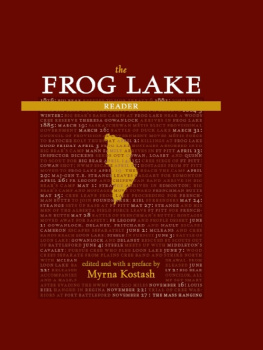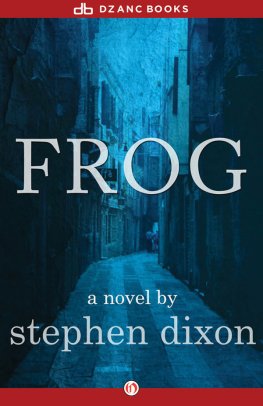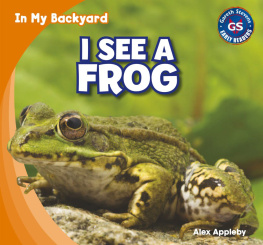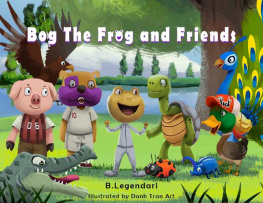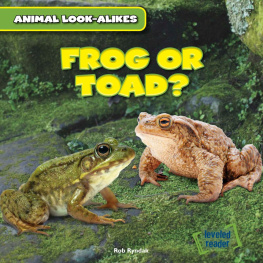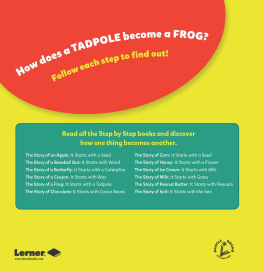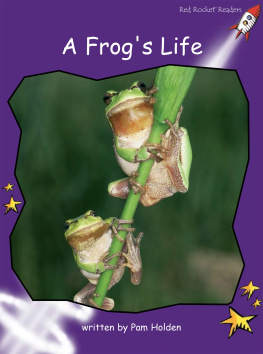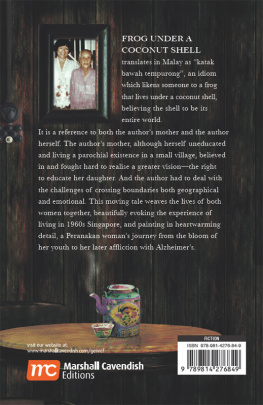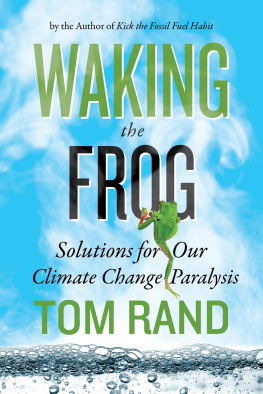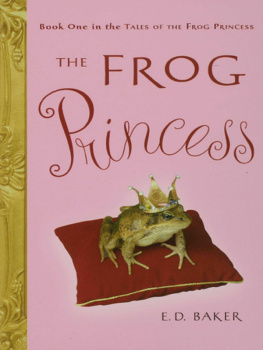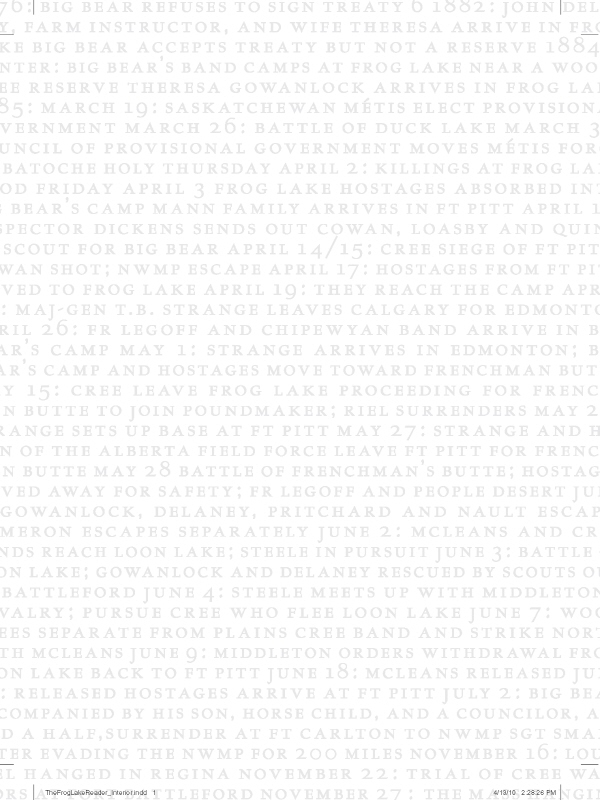
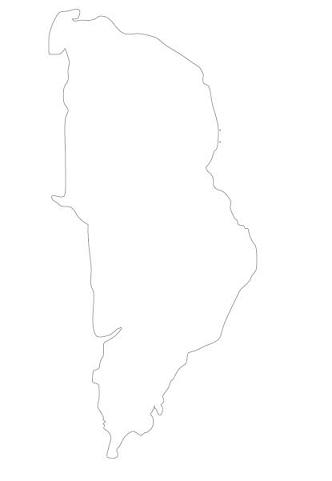
THE FROG LAKE READER
the
FROG LAKE
READER
edited and with a preface by
Myrna Kostash

Library and Archives Canada Cataloguing in Publication
The Frog Lake reader / Myrna Kostash, editor.
Includes bibliographical references and index.
ISBN 978-1-897126-46-2
1. Frog Lake Massacre, Frog Lake, Alta., 1885.
I. Kostash, Myrna
FC3215.F765 2009 971.05'4 C2009-902363-6
COPYRIGHT MYRNA KOSTASH 2009
The use of any part of this publication reproduced, transmitted in any form or by any means, electronic, mechanical, recording or otherwise, or stored in a retrieval system, without the prior consent of the publisher is an infringement of the copyright law. In the case of photocopying or other reprographic copying of the material, a licence must be obtained from Access Copyright before proceeding.
NeWest Press acknowledges the support of the Canada Council for the Arts, the Alberta Foundation for the Arts, and the Edmonton Arts Council for our publishing program. We also acknowledge the financial support of the Government of Canada through the Book Publishing Industry Development Program (BPIDP).
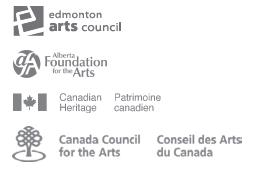
Editor for the Board: Don Kerr
Cover and interior design: Natalie Olsen
Text Editor: Eva Radford Permissions
Coordinator: Mary Trush
Author photo: David Cheoros
Every effort has been made to obtain permissions for excerpts. If there is an omission or error, the publisher would be grateful to be so informed. See the Permissions section for more information.

#201 8540-109 Street
Edmonton, Alberta T6G 1E6
780.432.9427
www.newestpress.com
No bison were harmed in the making of this book.
We are committed to protecting the environment and to the responsible use of natural resources. This book was printed on 100% post-consumer recycled paper. All rights reserved.
1 2 3 4 5 12 11 10 09
printed and bound in Canada
TABLE OF CONTENTS
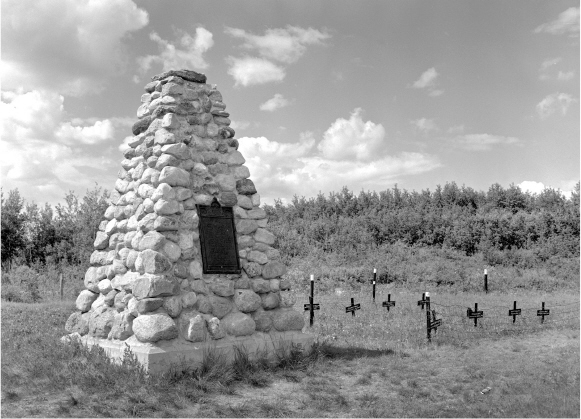
Cairn erected in 1925 at National and Provincial Historic Site of Frog Lake, AB, with graves of victims. (Provincial Archives of Alberta PA164612)
While doing the research for my book, Reading the River: ATravellers Companion to the North Saskatchewan River ( 2006 ), I visited the National Historic Site of Fort Battleford, Saskatchewan. Here I learned of the only mass hanging in Canadian history, of eight First Nations men on November 27, 1885. From a tourist brochure I read in a caf in North Battleford, showing a map of the town and its places of interest to visitors, I learned of the site of their mass burial, not far from the fort. I found the site, and there read on a placard that some of the men had been hanged for killings at Frog Lake, April 2, 1885. Their grave has been rededicated and it is a very beautiful but also solemn and mournful place. So is the Provincial Historic Site of Frog Lake solemn and mournful, for it contains the graves of some of those killed on April 2, 1885.
I did not pursue the story at the time, as Frog Lake was not located on the North Saskatchewan River. But in the course of my research over the next several months, I kept coming across the story, for it also involved events at Fort Pitt, Frenchman Butte, and Steele Narrows ( all historic sites in Saskatchewan ). I kept a separate file of these accounts; I also looked for literary texts and in new histories. The first fruit of these materials was a radio documentary I wrote for the CBC radio program Ideas, Voices from Frog Lake ( 2005 ). The next was an article in Legacy magazine ( Summer 2008 ), Following Big Bear. But even these formats were not enough to contain all that I had found and continued to find.
The fact is that an astonishing amount of material has been written since 1885 about the events precipitated by what has been known historically as the Frog Lake Massacre. Besides eyewitness accounts and contemporary press reports, people have written memoirs ( in English and French ), poems, short stories, novels; they have assembled oral histories; they have interviewed elders; they have rewritten the histories. All manner of perspective, voice, bias, style, is present. And so I decided to bring them all together, in excerpts, in The Frog Lake Reader. More than a textbook or anthology of these voices, the Reader works as a drama of interplaying, sometimes contradictory, often contrapuntal, narratives.
Besides the excerpts themselves, I have included edited portions of the four interviews I conducted for the Ideas documentary, with historians Sarah Carter, Heather Devine, and Blair Stonechild, and with novelist Rudy Wiebe. And I have added my own point of view here and there, introduced by the letters, MK .
Over the course of researching several adaptations of the literature of the 1885 Frog Lake troubles for print and radio I was fortunate to have the assistance and support of Duane Burton, indefatigable research associate and sound recorder; Bob Hendriks, historian in Heinsburg, ab, for difficult-to-find information about the Frog Lake area; Wayne Brown, writer in Peck Lake, sk, for a guided tour of Steele Narrows, and his wife Marilyn for hospitality in their B&B in Lakeview; Sarah Carter, Heather Devine, and Rudy Wiebe for their willingness to keep on talking about Frog Lake. Thanks to Sarah Carter for a helpful reading of the manuscript. I am grateful, too, for the professionalism and open enthusiasm of the NeWest Press staff in support of this book: Lou Morin, General Manager, Tiffany Foster, Production Editor, Diane Cameron, Marketing Assistant, Loretta Ludwig, Office Administrator, and Natalie Olsen, Designer. Thanks also to Diane Bessai, Don Kerr, and Peter Kirchmeier, for their help in the early stages, and to the NeWest Editorial Board for their decision to publish The Frog Lake Reader.
Myrna Kostash
May 2009, Edmonton
Individuals mentioned in cited texts.
Big Bear ( Mistahimaskwa ): Plains Cree chief, 182588. Troubled by the hunger of his people due to the disappearance of the buffalo, by the encroachment of settlers on Cree lands, and by fears of poverty and cultural loss on the reserves, Big Bear refused to sign Treaty Six in 1876, determined to wait until treaty promises were kept. But in the winter of 1884, with the last buffalo gone and with the threat of mass starvation hanging over his band, he and his people moved to the Frog Lake area. By 1885, however, the young warriors, led by his son Imasees ( Bad Child, Wild Child, Mean Boy ) and Wandering Spirit ( Kapapamahchakwew ), effectively wrested control from Big Bear, which led to the killings at Frog Lake settlement in April 1885. Still counselling peace, Big Bear surrendered at Fort Carlton on July 2, 1885. He was tried for treason-felony, found guilty, and sentenced to three years at the Stony Mountain Penitentiary. He was released on March 4, 1887, and died on Poundmaker reserve a year later.
Next page
